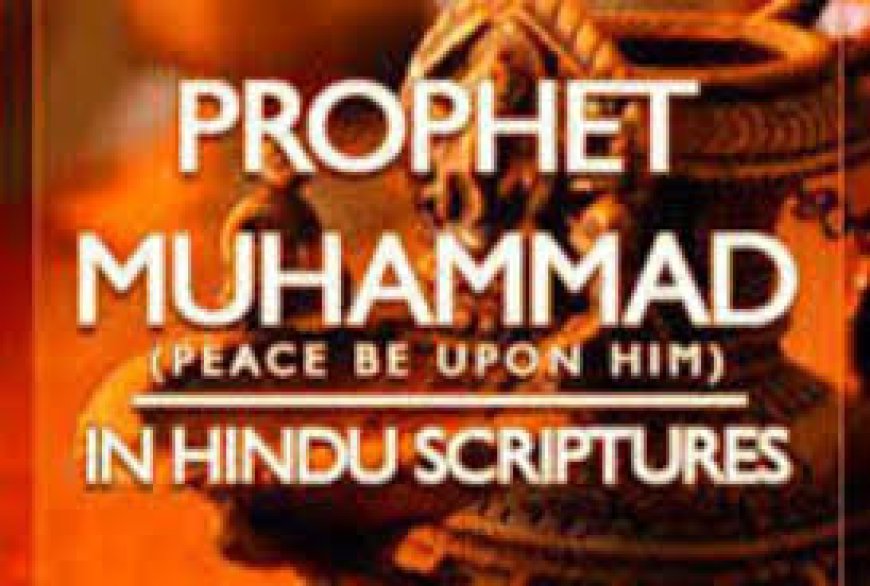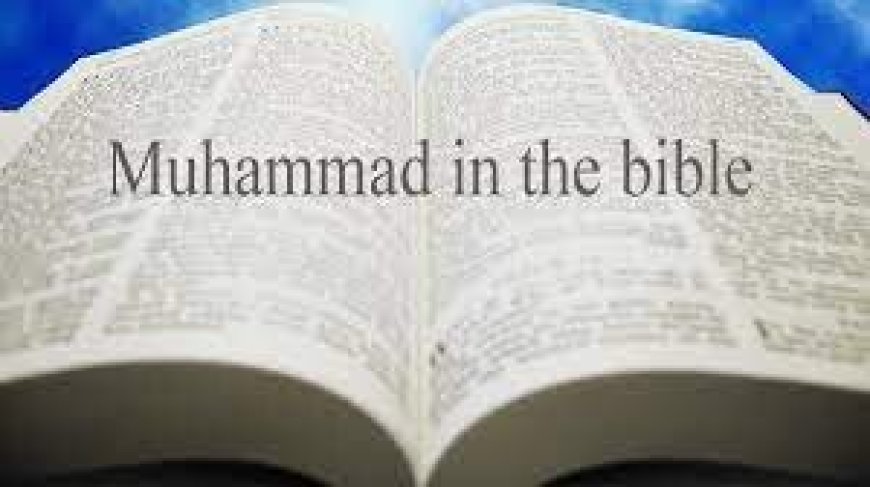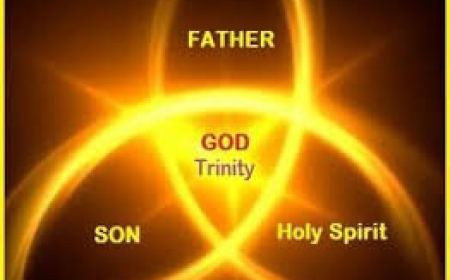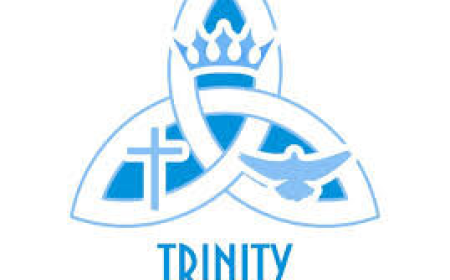Does the Bible predict the coming of Mohammed?
. In fact, they claim that Jesus himself predicted that Mohammed would come after him and so if Christians really respect and value the words of Jesus Christ, then they should be followers of Mohammed.

Does the Bible predict the coming of Mohammed?
By Elijah Asuo Wiredu
It is a major argument for Muslims that the Bible (the most authoritative book for Christians) predicts that Mohammed would come. In fact, they claim that Jesus himself predicted that Mohammed would come after him and so if Christians really respect and value the words of Jesus Christ, then they should be followers of Mohammed. Are these propositions true? Does the Bible actually foretell the coming of Mohammed? Did Jesus Christ really say that Mohammed would come after him? Well, these are the questions we’ll try to respond to.

There are three verses from the Bible which Moslems say talked about the coming of Mohammed. The first is Song of Solomon 5:16 and it goes as
His mouth is sweetness itself; he is altogether lovely. This is my beloved; this is my friend, daughters of Jerusalem.
Solomon 5:16
It appears not to have any connection about the topic on the surface look but a closer look at it makes it look quite similar to what they claim, yet, out of context. In the Hebrew version of the Bible, the expression “lovely” is written as “machamadim” and it means desirable, lovely or cute. Moslems believe that since the name sounds like and actually resembles Mohammed, then it was he and t is an integral part of the messages they evangelize with. But if that was the truth, then the word was many times again in the Bible. For example, Hosea 9:16 uses “machamadim” a couple of times.

Ephraim is stricken; their root is dried up; they shall bear no fruit. Even though they give birth, I will put their beloved children to death.
Hosea 9:16
In the text above, the Hebrew word for “beloved” is also “Machamadim”. So if Machamadim is for Mohammed then the verse says that, “I will put their “Mohammed” children to death”. Moslems will obviously not accept that. No wonder they prefer to quote the former at the neglect of the latter.
Also in the same chapter, verse 9 says that
What is thy beloved more than another beloved, O thou fairest among women? What is thy beloved more than another beloved that thou dost so charge us?
Songs of Solomon 5:9
The verse 16 we read above was part of the answer to the question posed to the speaker by her friends and coincidentally her friends used the term “beloved” twice- in each case of usage, the Hebrew word is “Machamadim”. So if the word is a variant of Mohammed, then that scripture would be read differently as
“What is thy Mohammed more than another Mohammed, O thou fairest among women? What is thy Mohammed more than another Mohammed that thou dost so charge us?”
Our little experience in English language tells that in verse 9 above the word is used as a common noun. It’s not even a proper noun and doesn’t qualify to be the name of a person.
Deuteronomy 18:15-22, , and John 16:5-11.
Deut 18:15-19
15 The Lord your God will raise up for you a prophet like me from among your own brothers. You must listen to him. 16 For this is what you asked of the Lord your God at Horeb on the day of the assembly when you said, "Let us not hear the voice of the Lord our God nor see this great fire anymore, or we will die." 17 The Lord said to me: "What they say is good. 18 I will raise up for them a prophet like you from among their brothers; I will put my words in his mouth, and he will tell them everything I command him. 19 If anyone does not listen to my words that the prophet speaks in my name, I myself will call him to account.
Personally, I don’t see the connection this Bible verse has with Mohammed. In the first place Mohammed was not a Jew and he was not a brother to the Jews. The fact that the Bible said “God will raise up for you a prophet like me” does not mean it was talking about Mohammed. Israelites were even fighting with the descendants of Esau and called them enemies. Esau would have been a closer brother to Israel than Ishmael. Also over twenty (20) major and minor prophets in the Bible came after Moses. Jesus also came after Moses and even after Jesus, prophets like Agabus and some other Apostles also came. In fact, in the days of John the Baptist, the Jews thought he was that one. They even confronted him as to whether he was the one or they should expect another.
24 Now the Pharisees who had been sent 25 questioned him, “Why then do you baptize if you are not the Messiah, nor Elijah, nor the Prophet?” 26 “I baptize with water,” John replied, “but among you stands one you do not know. 27 He is the one who comes after me, the straps of whose sandals I am not worthy to untie.” 28 This all happened at Bethany on the other side of the Jordan, where John was baptizing. 29 The next day John saw Jesus coming toward him and said, “Look, the Lamb of God, who takes away the sin of the world! 30 This is the one I meant when I said, ‘A man who comes after me has surpassed me because he was before me.’ 31 I myself did not know him, but the reason I came baptizing with water was that he might be revealed to Israel.” 32 Then John gave this testimony: “I saw the Spirit come down from heaven as a dove and remain on him. 33 And I myself did not know him, but the one who sent me to baptize with water told me, ‘The man on whom you see the Spirit come down and remain is the one who will baptize with the Holy Spirit.’ 34 I have seen and I testify that this is God’s Chosen One.”

The matter was settled by the statements made by John the Baptist in which he ended by saying “I have seen and testify that this is the one (the expected prophet and messiah)”.
John 16:7
The understanding of Islamic scholars about this verse is that Jesus said he would send Mohammed and so Jesus himself prophesied the coming of Mohammed.
But very truly I tell you, it is for your good that I am going away. Unless I go away, the Advocate will not come to you; but if I go, I will send him to you.
John 16:7
But it appears very difficult if not impossible to relate this verse to Mohammed. Mohammed was born 570 years after Jesus had ascended to Heaven. If he was the one Jesus spoke about, then 570 years was too long a time to wait for the advocate. Besides Jesus had told the disciples to wait till the advocate comes.
On one occasion, while he was eating with them, he gave them this command: “Do not leave Jerusalem, but wait for the gift my Father promised, which you have heard me speak about. For John baptized with water, but in a few days you will be baptized with[b] the Holy Spirit.”
Acts 1:4-5
The disciples who were to wait for the advocate died many years before AD570 and considering the purpose that the advocated was coming fulfill, it wouldn’t have been necessary any more. He went further to say that it was the Holy Spirit who descended on them 50 days after his ascension. In fact in John 16 where Moslems claim Jesus spoke about Mohammed, Jesus went ahead in verse 13 to say that the advocate was the Holy Spirit and not a human being.
But when he, the Spirit of truth, comes, he will guide you into all the truth. He will not speak on his own; he will speak only what he hears, and he will tell you what is yet to come.
John 16:13
This may end our discussion on the issue of the Bible predicting the coming of Mohammed. Apart from the verses discussed above, Moslems have not made any argument from the Bible that Mohammed was prophesied to come. We have seen from our discussion that the Bible has not predicted the coming of Mohammed and Jesus Christ never prophesied that he was going to send Mohammed to come to us.
Files
What's Your Reaction?


































